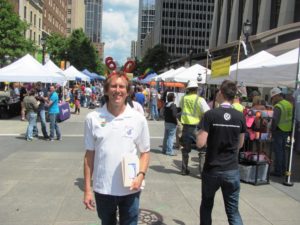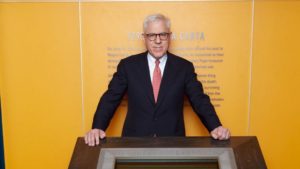
Kiwanda Stansbury, Director, Inclusion and Diversity, Advance Auto Parts, Speaker at the North Carolina Diversity Best Practices Meeting.
As a diversity and inclusion consultant, I often attend various workshops to continue to pick up the latest development in my field. In early July, I attended a half day “Diversity and Inclusion Best Practices” seminar organized by the National Diversity Council – Carolinas in Durham, NC. One of the presenters was Kiwanda Stansbury, Director, Inclusion and Diversity, Advance Auto Parts.
Ms. Stansbury started off by stating that Advance Auto Part’s and her mode of operation is to foster change and target to do things differently and better. That was evident in the way they structure and execute their employee resource groups, which they call “Team Member Networks” which follows their corporate nomenclature of referring to their employees as team members. Current Team Member Networks include:
• Women in Motion Network (WIMN)
• Knowledge Network – Diversity of Thought
• A.L.I.G.N. – African Americans Leading Inclusion and Growth Network
• S.E.R.V.I.C.E. – Serve, Educate, Recruit, Value, Celebrate and Empower (Veterans)
• #Connext – Millennial Network
• Amigos Unidos – Hispanic / Latino
• Advance Pride – LGBTQ
• R.I.C.E. – Recognizing International Cultures and Ethnicities
And Ms. Stansbury’s position title was different than normally found in the diversity and inclusion field in that her title is Director, Inclusion and Diversity. This highlights that inclusion is the real emphasis since that is where the work happens. Diversity is a fact of life, but inclusion is the hard work or making sure everyone is welcomed and valued in the workplace.

Company Resource Groups very often staff booths and tables at community diversity activities like this one I attended on my 60th birthday.
• Team Member Inclusion and Development
• Talent Acquisition and Retention
• Customer and Community Outreach which involves connecting team members to the customers and communities they serve through outreach and community service projects.
• Business Alignment which includes aligning with the cultural shift, corporate strategy, tying to organizational health and establishing metrics to measure efforts.
Providing a strong framework around inclusion efforts will surely benefit Advance Auto Parts’ Team Member Networks by providing them a structure to operate so they thrive and be effective for both the corporation and the team members over the long term.
* * * *
Other Blogs I have written about Employee Network Groups:
Evolving Employee Resource Groups – a Creative Approach from Erie Insurance, which I wrote after the 2016 National Diversity Council – Carolinas Best Practices meeting.
Diversity Councils and Employee Resource Groups – Not “either / or,” but “both / and” which I wrote in response to one firm planning to close down their employee resource groups.


